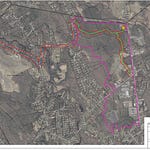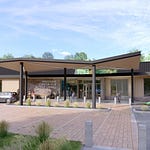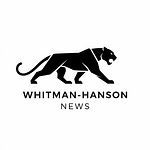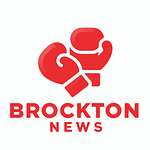Abington residents will head to the polls on Saturday, November 15th, for a special election to fill an open seat on the Select Board. The vacancy arose following the unexpected resignation of Amanda Zompetti. Zompetti, who had recently won a full three-year term in April, moved out of state after securing an opportunity to buy a bed and breakfast in Bar Harbor, Maine. The winner of the election will serve the nearly three years remaining on the term.
The two candidates vying for the seat are Michael Lavery and Nicole Emery. Both candidates are focusing heavily on the town’s projected budget challenges and affordability issues. Polls are open 8-4 at Beaver Brook Elementary.
--------------------------------------------------------------------------------
The Candidates: Background and Motivation
Michael Lavery is a small business owner, first-time homeowner (having moved four years ago), and an expecting father. He holds a BFA in Communications and studied Political Science. He is currently active in town government, serving on the Affordable Housing Trust/Committee and as a town election worker. He also volunteers calling soccer games for Abington CAM. Lavery was motivated to run after being encouraged by outgoing Select Board member Amanda Zompetti and others who recognized his dedication and passion for the town.
Nicole Emery has lived in Abington for about 11 years with her husband and four children. She is a registered nurse, working at a Boston hospital and as a supervisor for home care on weekends. She is heavily involved in the school system, volunteering frequently and serving as the Co-chair on the PTO board at Abington Middle School. Emery decided to run because she wants to contribute her skills, experience, and passion to the town in a “bigger and more impactful way”.
--------------------------------------------------------------------------------
The Central Challenge: Budget Deficit and the Override
Abington is currently facing a projected budget deficit for Fiscal Year 2027. Given this challenge, the Select Board has already indicated they will likely seek a Proposition 2 1/2 override next spring.
Differing Views on the Override
• Nicole Emery views the possibility of an override vote as one of the biggest challenges ahead. She believes it would be “really, really difficult to support a one big override” because she fears it could price many people out of town and potentially cause property values to decline. While essential departments like police, fire, and schools cannot “do more with less,” she stated that she needs to examine the specific line items being proposed, as she suspects some other departments could still tighten their spending.
• Michael Lavery personally does not agree with permanently raising taxes, which an override entails. However, he noted that he would support it if the residents vote for it at Town Meeting. Lavery expressed concern about a potential “menu version” of the override—where voters select which departments receive funding—fearing that vital but less visible services, such as trash collection or road work, might “fall through the cracks”.
--------------------------------------------------------------------------------
Strategies to Close the Funding Gap
Both candidates agree on the urgent need to address the budget crisis, but they propose different primary pathways to balance the budget.
Michael Lavery: Focusing on Cost Savings and Sustainable Income
Lavery believes the solution lies in smaller, sustainable options, likening them to “singles” in baseball rather than a “home run”.
1. Reducing Costly Overtime: He aims to cut down on police and fire overtime, noting that the police department exceeded its allocated overtime budget by over $336,000 last year. He proposes hiring more full-time staff to reduce this expense and prevent burnout among officers.
2. Leveraging Affordable Housing Status: Abington is now above the 10% affordable housing threshold thanks to work on the Affordable Housing Trust, which gives the town access to new zoning options and grants, such as 40R Smart Growth Zoning near MBTA stations.
3. Alternative Town Services: He proposed that if the current trash provider will not negotiate a significantly better rate, the town could explore running its trash services internally by purchasing its own trucks.
4. Innovative Ideas: Lavery suggested looking into reducing taxes for grocers to offer lower grocery prices to residents while increasing business to the stores.
Nicole Emery: Focusing on Tax Base Growth and Regional Partnerships
Emery’s central strategy is to increase the tax base to lighten the burden on homeowners.
1. Targeting Commercial Growth: She identifies Union Point (where Abington owns 75 acres) as the “biggest growth opportunity” for commercial development. She also targets underdeveloped areas along Route 18.
2. Grant Utilization: Emery encourages utilizing the state’s Community One Stop for Growth program, which allows towns to submit a single, coordinated application to access more than a dozen state funding programs for infrastructure and site readiness.
3. Strengthening Partnerships: She advocates for working more closely with the South Shore Chamber of Commerce and the Old Colony Planning Council to aggressively market Abington and attract new businesses.
4. Service Efficiency: She suggests examining every department for efficiencies, including reducing energy costs, reviewing staffing needs, and exploring shared services with nearby towns.
--------------------------------------------------------------------------------
Key Policy Issues in the Race
Tax Rate Debate
With commercial and industrial properties making up less than 10% of the tax base, the financial burden is increasingly borne by homeowners.
• Michael Lavery supports adopting a split tax rate to shift some of the burden off residents. He also suggests exploring marginal tax rates or “mansion taxes” on high-price transactions, noting that these could benefit the majority of residents.
• Nicole Emery does not believe a split tax rate would be practical at this time. With the commercial tax base at only about 7%, she argues that adopting a split rate now would only minimally reduce the residential tax impact while disproportionately increasing the tax rate on “small commercial” properties, which represent about 68% of the town’s commercial properties.
Future of North and Center Schools
The town-owned school properties, particularly North and Center Schools, are awaiting plans. North School is currently used by the DPW.
• Michael Lavery favors finding ways to use the buildings for sustainable income rather than relying on a one-time sale. He suggested ideas such as the municipal grocer, or leasing units/cottages for senior housing or first-time homeowners, allowing the town to retain first refusal if the residents move.
• Nicole Emery has shifted her view from recreational use toward generating revenue due to the town’s financial situation. She would lean towards developing the properties for senior or affordable one-bedroom housing, noting that they have been approved through zoning for 21-bedroom apartments to meet mass housing regulations.
Water Capacity and Quality (PFAS)
Water quality, specifically PFAS contamination, remains a top concern.
• Both candidates acknowledged the issue and stated that Abington is moving in the right direction.
• Emery noted that the filtration system for PFAS and infrastructure upgrades are nearing completion (expected by the end of this year or fall). Discussions are underway to explore tying into the MWRA (Metropolitan Water Resources Authority) system through unused capacity at Union Point.
• Lavery confirmed the town is installing a new filtration system and has a new prediction system to manage growth, putting Abington “ahead of the curve on PFAS nationally”. He is interested in looking into all options for supply, including connecting with Brockton or the MWRA, while balancing the related costs with the budget.
--------------------------------------------------------------------------------
Final Messages to Voters
Both candidates stressed the importance of resident participation in the election:
• Michael Lavery’s top priorities if elected would be tied to affordability and the budget, including cutting overtime and promoting affordable housing. His core message is that people need to go out and vote on November 15th, regardless of who they choose, noting that some recent elections came down to only seven votes.
• Nicole Emery’s top priorities are maintaining transparency, improving communication, and serving as a bridge between residents and the Select Board. She urged voters to support someone they trust to make decisions, especially if they do not have the time to be involved themselves.
Voters seeking more information on the candidates or the election are encouraged to check with the Town Clerk’s office or visit the town of Abington’s official website. Vote November 15 8-4 at Beaver Brook.
Sources for this story include: Abington News, Abington CAM, and candidate facebook pages. Michael Lavery and Nicole Emery











